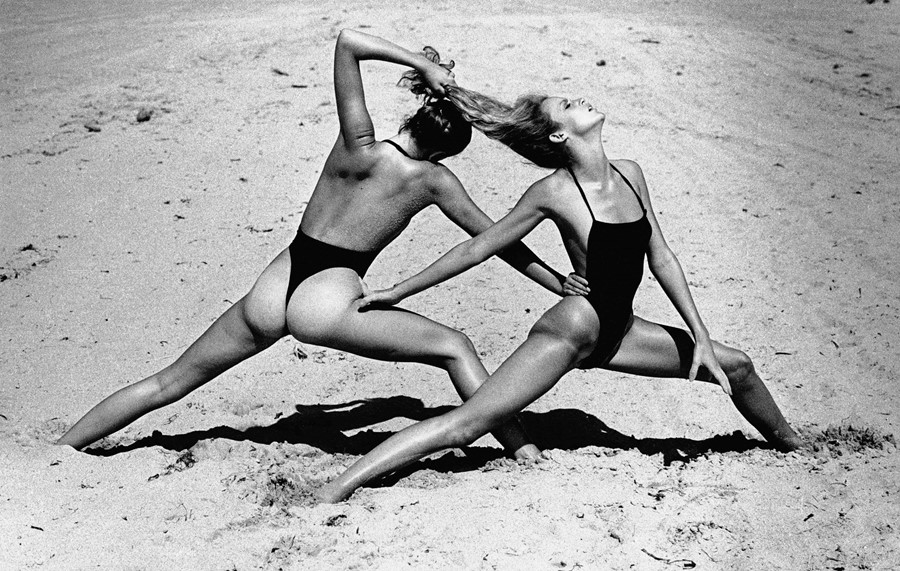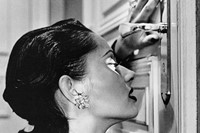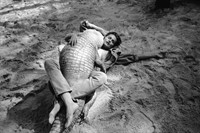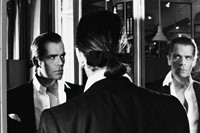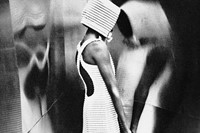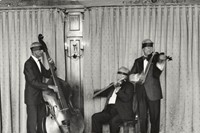A new retrospective at the Helmut Newton Foundation guides visitors through the storied chapters of the German photographer’s trailblazing career
Helmut Newton was one of fashion photography’s most extraordinary pioneers. So much so that it’s easy to spout clichés when describing his work: iconic, timeless, groundbreaking, taboo-busting etcetera. Yet all of these apply – as evidenced, in abundance, in a new retrospective of his work at the Helmut Newton Foundation in Berlin, and a sleek, accompanying catalogue published by Taschen, both titled Helmut Newton. Legacy.
Timed to coincide with Newton’s centenary last year, but delayed because of Covid, the show is laid out chronologically, allowing visitors to stroll through the different chapters of Newton’s life and career. This begins with his early years in Berlin, where he worked as an apprentice to the famed fashion photographer Yva, and ends with his death in the 2000s, until which point the octogenarian Newton was still in high demand, making startlingly inventive portraits and fashion imagery.
Featuring some 300 works, the exhibition is a chance to revisit some of Newton’s greatest hits – from his cooly insouciant 1975 shot for French Vogue showcasing Yves Saint Laurent’s Le Smoking trouser suit, worn by an androgynous, dandy-channelling model on a Paris street; through to his brilliantly contemporary take on Velázquez’s Rokeby Venus from 1981, which sees the nude goddess’s mirror replaced by a TV monitor. Around half of the photographs are on display for the very first time, including many of Newton’s more unconventional fashion images from across the decades, which perfectly encapsulate what curator Matthias Harder describes as “the changing spirit of the times”.
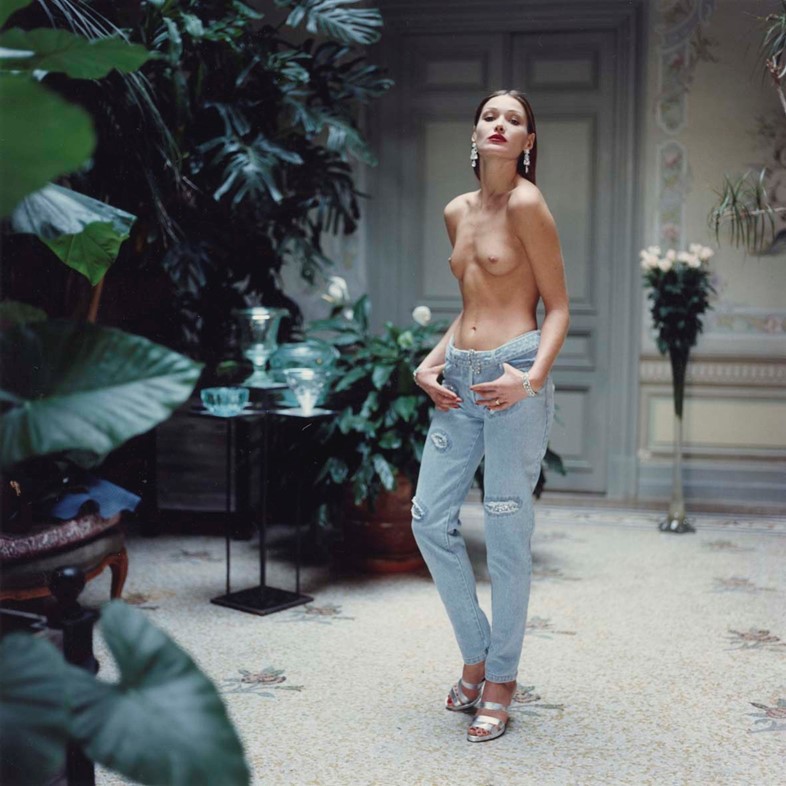
It is particularly interesting to observe the way in which this evolving zeitgeist impacted Newton’s storytelling, being both the master of narrative suggestion, as well as titillatingly suggestive narratives. From early in his career, for instance, he would set up fashion stories as a series of comic-strip-esque vignettes, inspired by reportage photography (think a stop and search roleplay at the French/Belgian border, featuring multiple outfit changes from the central protagonist). In the 1960s, Newton described his work as being “like film noir, like pulp fiction” – cue multiple references to Alfred Hitchcock and shadowy odes to Raymond Chandler – referring to a penchant for theatrical suspense that would endure throughout his career. Meanwhile, the sexual revolution of the late 60s would leave a lasting impression on the famously nude-centric image-maker.
A sweetly candid portrait of his wife June Newton, smoking at the kitchen table, bare-breasted after dinner, is included in the show, and marks Newton’s first nude. From there, things get decidedly more raunchy, as the photographer begins his probing of social and moral boundaries with endless depictions of sexually and physically empowered women.
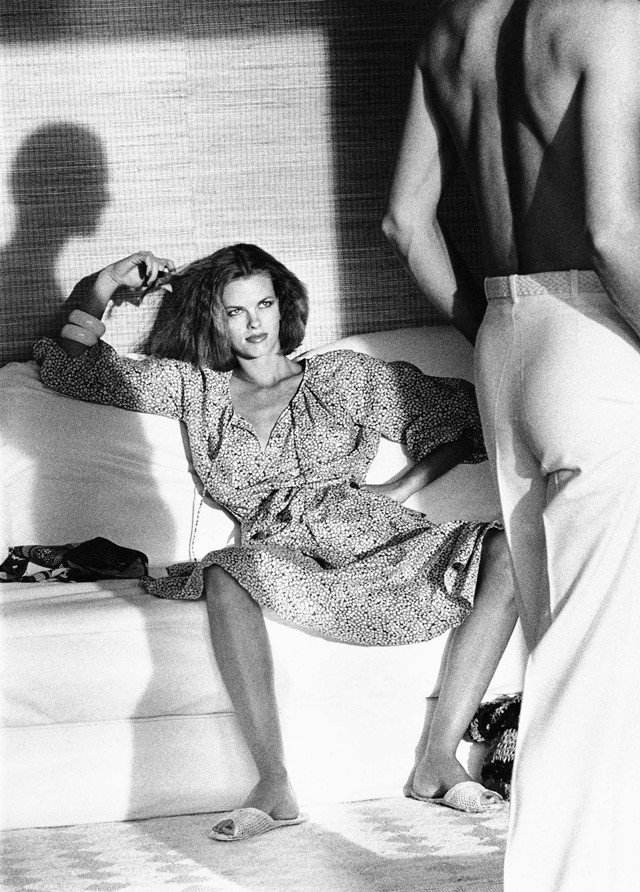
Indeed, Newton’s unwavering ability to persuade editors that his decidedly outré vision is just the right fit for their brand, whatever that may be, is perhaps the most remarkable of all his feats. In the room highlighting his work from the 1970s, an image for French Vogue and another for Playboy are entirely indistinguishable in tone; while in the 1980s room, he places a nude woman front and centre in a raincoat fashion story, while he – the true, yet hard-to-distinguish model in a beige mack – is reflected, camera over face, in the mirror behind her. Not to mention his revolutionary image Fat Hand With Dollars, showing just that, plus a vast diamond ring, which formed part of a fine jewellery shoot.
This work appears towards the end of the show, beneath a wall quote from Newton, declaring, “I am not an artist, I’m a photographer”. Even so, the entire exhibition appears to retort, fashion photography has rarely looked so artful.
Helmut Newton. Legacy is at the Helmut Newton Foundation until May 22, 2022. The accompanying publication, published by Taschen, is available now, RRP £80.
